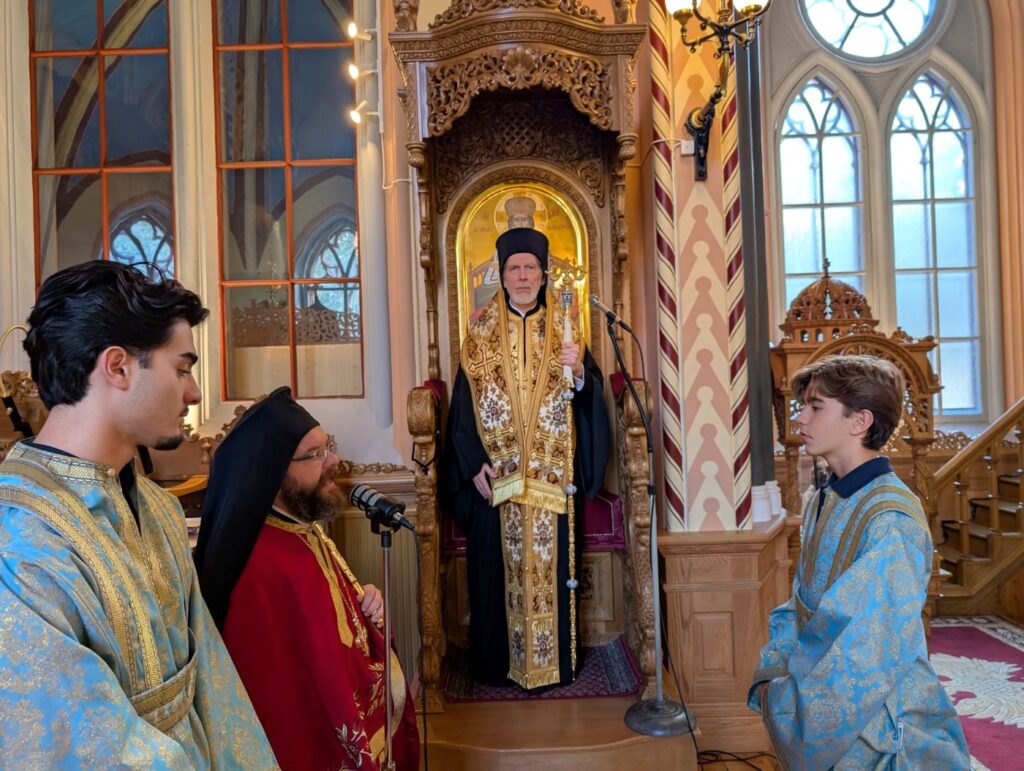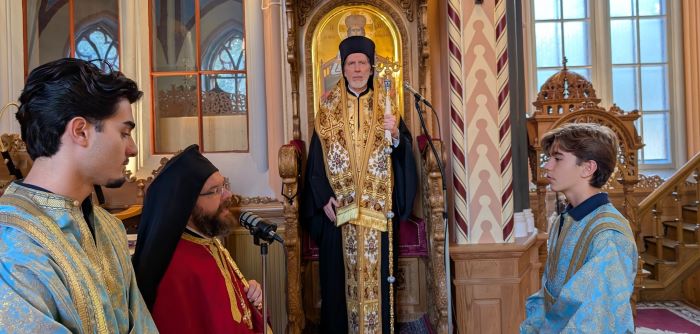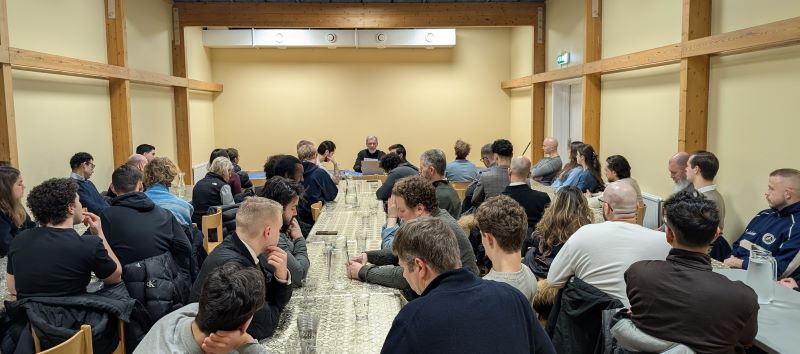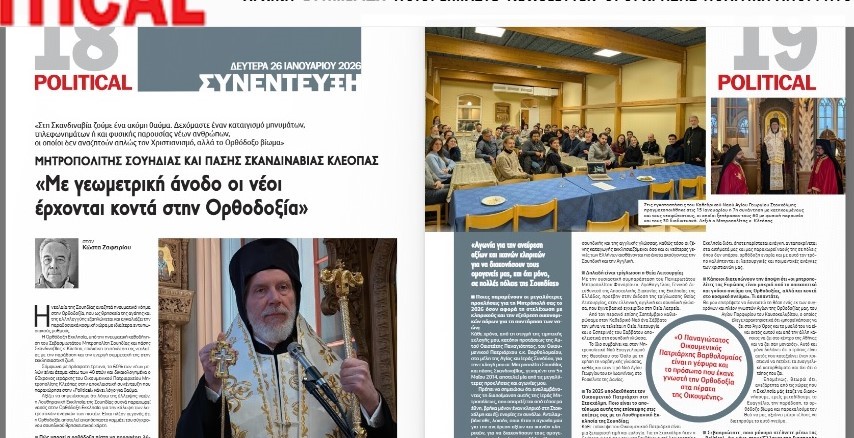St. George Cathedral of Stockholm
Sunday, October 12, 2025
Dearly Beloved Brothers and Sisters in Christ,
Today we hear one of the most beautiful and important parables that our Lord Jesus Christ ever spoke — the Parable of the Sower. Christ tells us about a man who went out to sow his seed. Some of it fell by the wayside and was eaten by birds; some fell on rocky ground and withered away; some fell among thorns and was choked; and some fell on good soil and produced much fruit.
This parable is not just a story about farming. It is a mirror held up to our hearts. The seed is the Word of God, and the soil is the condition of our souls.

Saint John Chrysostom says that the Lord speaks of the soul as soil because, like earth, it can either bring forth fruit or grow nothing at all. He writes, “The heart of man is able to receive the seed of God’s Word, but whether it bears fruit depends on the care and attention we give to it.”
Every one of us hears the same Word. But not everyone bears the same fruit. The problem is not with the seed — God’s Word is always powerful and full of life. The problem is with the soil, the condition of our hearts.
The first kind of soil, the path, is hard and beaten down. The Word cannot enter because the heart has become closed. Saint Cyril of Alexandria explains that this happens when people hear the Gospel but do not take it seriously, and so “the devil comes and snatches the seed away.” How many times do we hear the Scriptures read in church, yet leave unchanged? How often do we let distractions, doubts, or pride steal the Word from our hearts?
The second kind of soil, the rocky ground, represents those who receive the Word with joy but have no root. Saint Gregory Palamas says that these are people who love the beauty of the Gospel but flee when trials come. When life becomes difficult, their faith withers because it was only on the surface. Brothers and sisters, the Christian life is not just about feelings; it is about faithfulness — holding fast to Christ in times of joy and in times of sorrow.
The third kind of soil, the thorny ground, is where the Word is choked by “the cares, riches, and pleasures of life.” Saint John Chrysostom warns us that even after we begin to grow in faith, we must be careful not to let worldly anxieties suffocate our spiritual life. We all have responsibilities — work, family, finances — but when these things dominate our minds, the Word of God finds no space to breathe.
Finally, there is the good soil — the heart that hears the Word, keeps it, and bears fruit with patience. Notice that Jesus says “with patience.” Spiritual growth is not instant. Saint Nicholas Cabasilas reminds us that grace works gradually in the soul, like a seed growing quietly underground. We must water it with prayer, nourish it with the sacraments, and protect it from the weeds of sin.
The Fathers teach us that the soil of the heart can be changed. Even if our hearts have been hard, rocky, or full of thorns, repentance can transform them. Just as a farmer tills the ground to prepare it for seed, we must cultivate our hearts through confession, humility, and love.
Prayer softens the soil. Fasting removes the stones. Almsgiving pulls out the thorns. And the Holy Eucharist fills the soul with divine life. When we live in communion with Christ, our hearts become fertile ground for the Word to take root and grow.
Saint Gregory the Theologian once said, “Let us become good soil, that we may bear fruit — some a hundredfold, some sixty, some thirty — but all for the glory of God.” The measure of fruitfulness does not matter as much as our faithfulness. Even a small fruit, grown in humility, is precious in the eyes of the Lord.
Today Christ the Sower passes by once again, scattering His divine Word into the field of our hearts. The question is: what kind of soil will He find? Will His Word find a heart open and ready to receive Him?
Let us each prepare our hearts so that the seed may not be wasted. Let us listen with attention, hold fast with patience, and live the Word we hear. Then the Lord will make us “good soil” — souls that bring forth fruit a hundredfold in faith, in hope, and in love. Amen!






